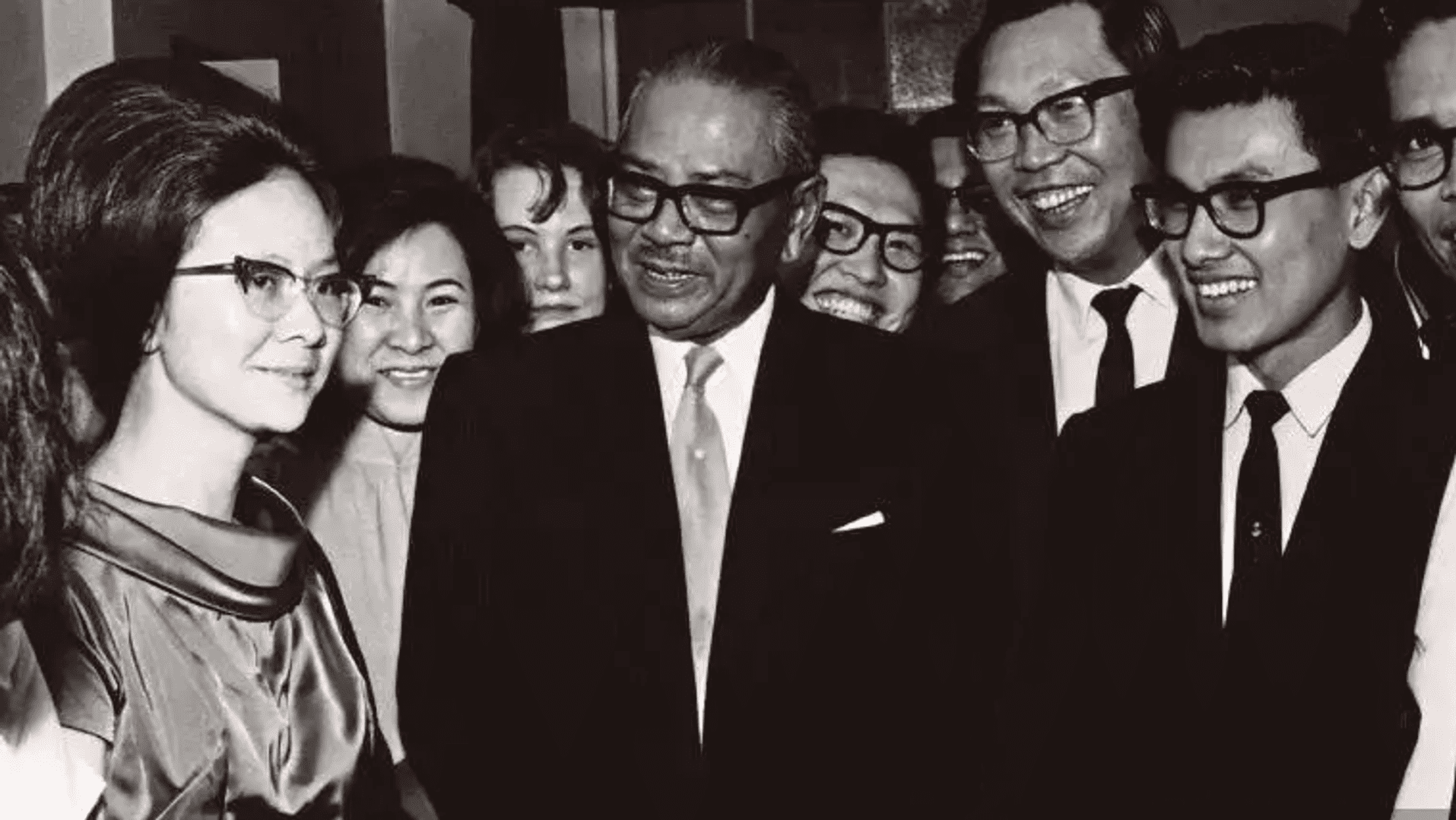01.10.2024
The dapper & socialite gent: Lessons from Tunku Abdul Rahman
Explore the legacy of Tunku Abdul Rahman, Malaysia’s Father of Independence, and how his socialite lifestyle & mastery of cultural diplomacy offers timeless lessons for the modern man.

By Raja Izz
The ever well-dressed Tunku Abdul Rahman (centre).
NST.
“Yes, I am a playboy… love the world. I like horse racing and playing poker" - Tunku Abdul Rahman, Conversation with Tunku Abdul Rahman
There are moments in history that define an aristocrat to become a patriarch of the country. Like the first Emperor of Rome - Octavian Caesar defeating Mark Anthony and Cleopatra at the Battle of Actium , the first U.S. President - George Washington led the Patriot forces to victory in the American Revolutionary War, and Malaysia's first Prime Minister - Tunku Abdul Rahman led Malaysia to independence without spilling a single drop of blood.
A figure that is loved by all races in Malaysia, Tunku's legacy extends far beyond his political achievements. His life offers a masterclass in cultural diplomacy, showcasing how a refined man can navigate diverse social circles to achieve grand national objectives.

